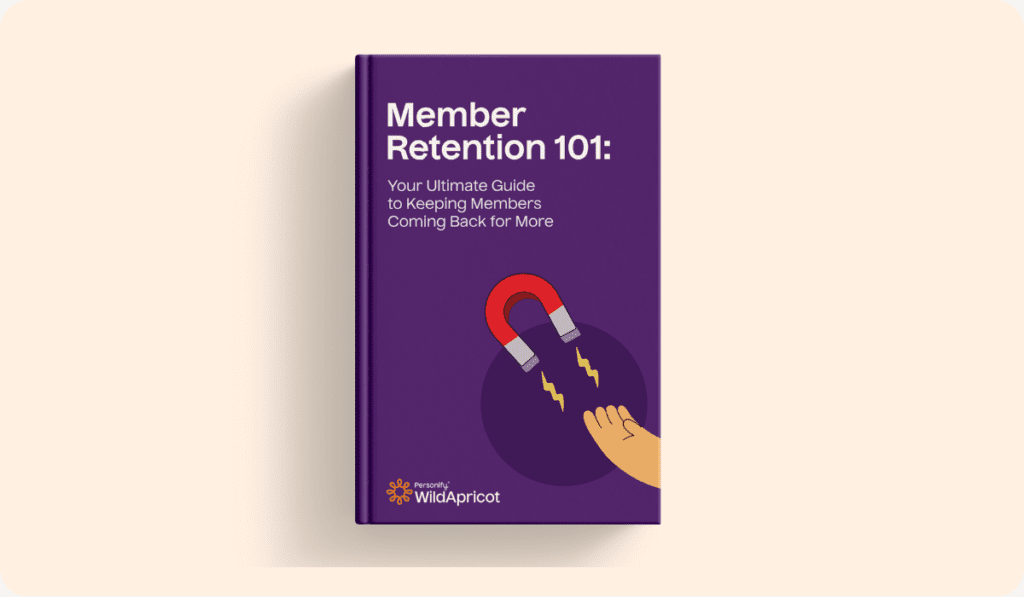When you’re starting up a homeowners association, it’s essential to learn which policies you should be enforcing! That’s why we’ve put together this list of 16 common HOA rules and regulations—plus a few unenforceable HOA rules to keep in mind.
Let’s get started!
What Are HOA Rules and Regulations?
HOA Rules and Regulations are a community document that outlines the rules homeowners must follow to participate in the association. They’re created to cultivate your community’s aesthetic, preserve the value of the property and lay out behavioral guidelines for neighbors.
You might see some overlapping terms when it comes to HOA rules, so here’s a quick breakdown of each:
- HOA Covenants, Conditions and Restrictions (CC&Rs) are a binding legal document that is filed with the state. Similar to rules and regulations, they cover things like property-use restrictions, dispute resolution agreements, maintenance and assessment obligations and insurance. However, they are much more difficult to change, requiring both a membership vote and conversation with the state!
- HOA Rules and Regulations serve a similar function to HOA CC&Rs. The primary difference is that they can be changed with a simple community review and board vote! They’re typically used for anything rules that could eventually be changed—like the number of pets allowed or the swimming pool hours. These rules can’t contradict the CC&Rs.
- HOA Bylaws are a legal document that defines the organization’s operational rules. This can include election and term guidelines for board members, meeting frequency and structure, dues management, the community budget and more.
- HOA Articles of Incorporation are the paperwork that’s filed with the state when your homeowners association is established as a corporate entity. Your bylaws will typically be included in this paperwork, along with your name, purpose, address and board members.
16 Common HOA Rules and Regulations
Curious about which HOA rules and regulations you should consider for your homeowners association? These are 16 of the most common HOA rules—based on the level of detail you want to include, these rules can be merged or broken up into subrules.
As you build out your HOA rules and regulations, keep in mind the negative perceptions about HOAs that have grown over the years. It’s natural to want some structure, but being too controlling or restrictive will reduce the appeal of joining your community!
Landscaping
Landscaping HOA rules can cover details about:
- Mowing expectations
- Weeding
- Size limits on topiary
- Use of fertilizers or pesticides
- Which plants are acceptable to have
Remember that gardening is a great source of pleasure for many people! While you might want to have some visual consistency in your neighborhood, your members will be much happier if they aren’t bogged down by excessive HOA backyard rules.
Home appearance and maintenance
Appearance and maintenance HOA rules often cover things like:
- Paint color
- Exterior renovation limits
- Political signs
- Landscaping and trash removal (if these don’t have their own section)
Depending on the detail of your appearance and maintenance rules, you can either include details from other sections here, or eliminate this section altogether.
Views blockage
Your neighbors want to have a nice view of their beautiful community, and views blockage rules cover restrictions around the size of:
- Trees
- Fences
- Sheds
This is a place where not being overly rigid in your HOA rules can be beneficial. For example, if a member is disappointed that they can’t have a large tree in their front yard, they’ll be happier if they can choose what types of flowers they can plant.
Design changes
Because homeowners associations want a relatively consistent aesthetic in their communities, design changes are often a part of HOA rules!
You might want to include some rules around:
- Building decks or patios
- Changing mailbox design
- Installing solar panels
You can also include a list of approved contractors for members to use. However, we’d recommend gathering these names as a useful resource rather than a set of guidelines!
Decorations
From Christmas lights to hanging flags, decoration restrictions can cover:
- Size of decorations
- How elaborate decorations can get
- When to put them up and take them down
- Flag rules
It’s important to be sure your HOA isn’t discriminating against any members. So if you choose to accept or reject flags, it has to be a rule that applies to everyone.
When it comes to holiday decorations, be sure to send out a reminder of take-down days in your HOA newsletter! In the post-holiday haze, people might lose track of the dates.
Exterior storage
Exterior storage is another HOA rule that covers the appearance of homeowners’ properties, and generally applies to:
- If sheds or other detached storage structures are permitted
- Where to store items like bikes or kayaks
Trash and recycling rules
Everyone’s lived on a street with that house that has garbage on the lawn! Many people join homeowners associations for that exact reason, which is why there are HOA rules and regulations around waste disposal.
This rules typically cover:
- What goes in community dumpsters
- If boxes must be broken down
- When trash cans must be taken to and returned from the curb
- Composting rules
- Leaving out furniture for disposal
If homeowners have a big clean up project planned, have them inform you if they’re going to set up a temporary garbage unit outside their home. Then, you can inform neighbors and avoid complaints in advance!
Parking & Vehicles
HOA rules about parking and vehicles usually include:
- How many vehicles are allowed
- What types of vehicles are allowed (RVs, boats, work vehicles, etc.)
- Speed regulations
- Parking stipulations
- Visitor parking
Speed laws should be in line with your local laws—the most unenforceable HOA rules are the ones that go against the law!
Pets
HOA rules about pets are some of the most contentious out there. As you consider what you’d like to include, keep this in mind—people protect their pets like they do their kids!
Many homeowners associations put down pet restrictions based on:
- The size or weight of a pet
- The breed of a pet (mostly dogs)
- The species of a pet
- The number of pets allowed
- How pet waste is managed
Legally, a homeowners association can’t remove a pet from an owner’s property, but the complications of this situation can kick off quite a bit of legal trouble.
No matter what restrictions you go with, make sure they are enforced fairly across the board. If you put down a two dog limit per home, the same rules apply whether people have one old terrier or two pit bulls.
Noise
Noise restrictions typically include quiet hours and regulations around the size of gatherings. These violations are typically the ones where the police show up, as most places have their own local laws around noise.
Occupancy limits
Occupancy limits are a common part of most HOA rules and regulations, and are typically determined based on the home’s square footage. Basically: the bigger the home, the more occupants are allowed.
If your neighborhood has families in it, be mindful that sometimes people are going to have babies. This isn’t something you can legally restrict according to the Fair Housing Act, so mind your wording in this section!
Rental rules and restrictions
If you choose to allow rentals in your neighborhood, our HOA rules should state that:
- Renters are subject to the same HOA CC&Rs as you are
- Property owners must notify the HOA in advance
- The HOA rules and regulations must be communicated to the renters
Typically, if the tenants break any of the rules, the fines will fall on the homeowners.
Common area maintenance
Common areas are spaces designed for everyone’s enjoyment, so the rules you put in place here are some of the most important! These areas can include pools, gyms, sports fields, sidewalks, parking lots and more.
The HOA rules for common areas usually regulate:
- Crowd size
- Visitor rules
- Hours
- Modification of the areas
- Code of conduct
Swimming pool rules and regulations for HOA purposes should have a special focus on safety. We’d recommend always having a lifeguard on duty, or noting that in lifeguard-free hours, the homeowners association doesn’t claim liability for anyone’s safety.
Insurance
Insurance guidelines will be different depending on which state you’re in. If you’re new to running an HOA, we’d suggest connecting with an HOA management company to make sure your rules are legally compliant.
In general, this section is meant to determine which insurance costs go to the homeowner versus the association! Offering valuable additional insurance can raise the value of becoming a member of your homeowners association.
Fees & Fines
It might sound obvious, but make sure homeowners have a clear understanding of what fees they need to pay and when they are due. These are often collected either monthly or quarterly.
Having clearly defined fines for violations also creates a sense of transparency. People might not like getting fined, but it’ll doubly sour their experience if they didn’t know the cost of their violations.
Psst—including a secure payment processor on your HOA’s website will make payments easy for your members, and save you the trouble of chasing them down!
Personal conduct
Things can get dicey when it comes to personal conduct rules. You don’t want to violate anyone’s rights, so stick to the rules that are common sense, like forbidding trespassing on a neighbor’s property.
2 Examples of Real HOA Rules and Regulations
Here are two great examples of what real HOA rules and regulations look like in action. Since these are put up on the associations’ websites (made with WildApricot’s HOA software!), they’re easy to access for current and prospective owners.
Woodland Shore Homeowners Association
Woodland Shore Homeowners Association has a great example of clear, reasonable and explicit rules for homeowners.
These are some great points that are worth highlighting:
- Includes a clause not to litter in the lake
- 48 hours to clean up items from an event
- Explicit definition of fines
- A statement of which rules are reflective of the town (with links!)
- A grace period for managing violations
Church Ranches Homeowners Association
Church Ranches Homeowners Association provides a list of rules that apply specifically to the “common lands” of the property.
The highlights of this document include:
- Definition of the terms laid out in the HOA rules and regulations
- A clear definition of what it means for a pet to be “in control” of the owner
- Which rules can be flexible with board approval
- A fishing clause about removing an invasive species of carp
How Member Management Software Can Support Your HOA Community
Managing a community of homeowners comes with a fair amount of admin work. Considering that most HOA board positions are volunteer, it makes sense that you’d want to minimize the amount of time you put in.
That’s where WildApricot comes in!
Our award-winning member management software has the tools to help you:
- Build a branded HOA website
- Manage secure payment processing for dues
- Create a comprehensive member database for your neighborhood
- Automate your newsletters and other emails
- Organize events for your community
Curious about how we can change the game for your homeowners association? Sign up for our 60-day free trial today!
FAQ
Here are some of the most common FAQs about rules for homeowners associations:
Are HOA rules and regulations legally binding?
Yes, HOA rules and regulations are legally binding. Because homeowners are asked to read and sign a document, they claim responsibility for upholding those rules upon signing. In the event of an unresolved violation, HOA’s have the right to take legal action.
How does an HOA enforce rules?
HOAs usually have a few steps when it comes to enforcing the rules:
- Warnings are a generous way to give homeowners the benefit of the doubt and the chance to solve the problem early.
- Fines are the next measure for managing violations.
- Legal action and foreclosure should only come as a last resort. This process is long, expensive and uncomfortable—whenever possible, it’s best to resolve conflict with a conversation or a reasonable fine.
Can police enforce HOA rules?
No, police cannot enforce HOA rules unless they are aligned with local laws about speed, noise or pet behavior. However, bylaw issues can be brought to court, as they are government documents.
What are unenforceable HOA rules and regulations?
HOA rules and regulations become unenforceable when they:
- Conflict with law
- Violate homeowners’ rights
- Discriminate against individual homeowners
- Are in violation of the Fair Housing Act
Because homeowners associations sadly have a known history of discrimination, we encourage you to have a diverse board of directors that can flag microaggressions or hidden biases.
Can homeowners associations evict people?
Homeowners associations cannot legally evict people, but legal action from the HOA could eventually lead to homeowners being removed from their home.
How can you change HOA rules and regulations?
HOA rules and regulations can be changed with the power of a community meeting and board vote. When a homeowner submits a complaint or request for an amendment, it’s always worth exploring the option for your community.
How do I find my HOA’s rules?
We recommend putting your HOA rules and regulations on your HOA’s website! While it’s not legally necessary, it gives your current and prospective members the opportunity to get familiar with how your HOA runs.
Setting Reasonable Rules and Regulations
We hope this list of common HOA rules and regulations has been useful for you! Remember: rules are created to connect and improve your community. Each one you pick sets the tone for your neighborhood—so do your part in making it a great place!
Need some help managing the operational parts of your HOA? Sign up for WildApricot’s 60-day free trial to see what our award-winning software can do for you!











